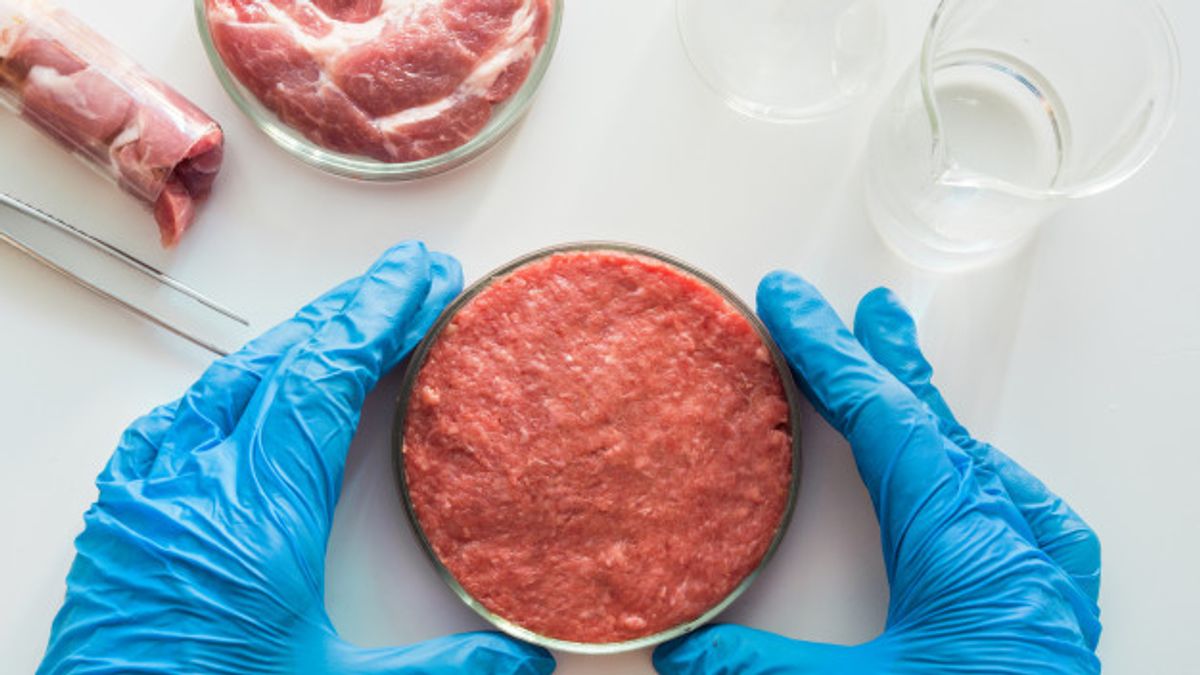JAKARTA - The development of mobile agriculture, such as food grown in factories from cells or yeast, has the potential to accelerate socioeconomic inequality or provide a lucrative alternative to the status quo.
That's the conclusion of a new study led by Penn State researchers. They are assessing new technologies that synergize computer science, biopharmaceuticals, tissue engineering, and food science to grow meat, dairy and egg products cultured from animal cells and/or genetically modified yeast.
The entities currently best positioned to capitalize on these innovations are large corporations, according to researcher Robert Chiles, assistant professor of rural sociology at the College of Agricultural Sciences.
"Nevertheless, new technologies such as artificial intelligence, smart agriculture, biotechnology, synthetic biology and 3D printers are also being used to decentralize and personalize food manufacturing," said Chiles.
"They have the potential to democratize ownership and mobilize alternative economic organizations aimed at open source licensing, member-owned cooperatives, social finance and platform business models," added Chiles.
Although mobile meat is not yet widely available to consumers, its proponents believe that mobile farming can reduce land, water and chemical inputs, minimize greenhouse gas emissions, increase food security, optimize nutrition, and eliminate the need to raise and slaughter large numbers of animals. . for food.
However, mobile agriculture can also concentrate ownership and power in the global food system, by displacing ranchers, farmers, fishermen and supporting industries.
The latter possibility has raised widespread concerns that mobile agriculture could accelerate wealth concentration and reduce public participation in agriculture. It even offers fewer environmental and nutritional benefits than promised.
According to Chiles, who is also a research associate at Penn State's Rock Ethics Institute, over the past decade, scholars have explored a broad spectrum of socioeconomic and ethical questions, relating to this technological approach.
However, he explained, this scholarship has not explored many types of mechanisms that can facilitate the development of this sector in a more equitable and equitable manner.
To assess the potential trajectory of mobile agriculture, Chiles and colleagues attended 11 mobile agriculture events and alternative economic organizations held across the United States over two years. They interviewed key experts at the conference and summit. They also asked how they thought the industry would develop and should develop. Likewise, the researchers collected data from an additional 21 online conferences.
The findings of the study, published in Agriculture and Human Values, underscore the arguments for increased public investment in open-source research and education on mobile agriculture. Especially for community and household level production. This paper is available to the public through open access.
“The jury is still out on how mobile agriculture will develop in the US and around the world,” said Chiles. Research that engages innovators and early adopters in the field in conversations about whether these new technologies will further concentrate wealth and power in the global food system is yielding valuable clues.
"Government investments in publicly accessible digital infrastructure can help facilitate a more equitable transition, as can public policies that protect worker rights and consumer privacy," added Chiles.
“Stakeholders who care about the fair and equitable implications of mobile agriculture can ultimately find more success by engaging with how this technology is developed than by avoiding it or trying to eradicate it,” Chiles added.
The English, Chinese, Japanese, Arabic, and French versions are automatically generated by the AI. So there may still be inaccuracies in translating, please always see Indonesian as our main language. (system supported by DigitalSiber.id)













